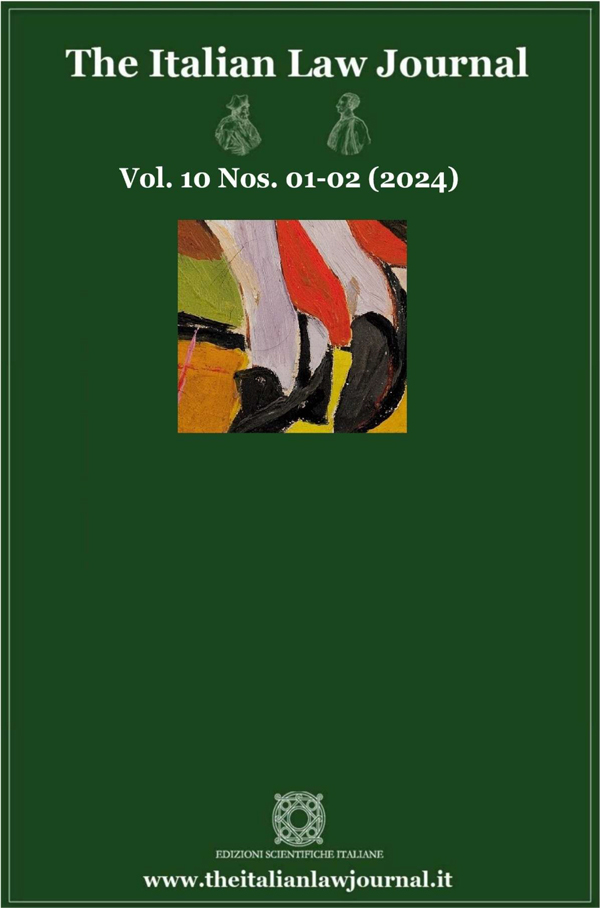11 THE ITALIAN LAW JOURNAL NO. 1 (2025)
The Legal Nature of Parody in Copyright Law: Learning from the Italian Way
by Maurizio Borghi This article examines the concept of parody in copyright law, focusing on the distinct approaches taken by the fair use system (American) and statutory exceptions (European), as well as the unique perspective of Italian jurisprudence. Both the fair use and statutory exception systems generally treat parody as a form of copying or imitation that, under certain conditions, is exempted from copyright infringement. The statutory exception approach promoted by EU law operates within the broader framework of a ‘no-copying’ rule whereby parody is recognised as an exception to this rule: the parodist is a copier, but the legal rule against copying is suspended or derogated in this specific instance. In the fair use system, the parodist is deemed to have ‘copied’ the original work, but in a way that is transformative - adding something new with a different purpose or character. This transformation is what exempts the act of copying from being classified as infringement. Despite these differences, the two approaches share the underlying assumption that parody involves copying or imitation of an existing work. In contrast, Italian jurisprudence offers a radically different perspective, where parody is not considered a form of copying at all, but rather an independent and original work in its own right. This approach, first established in a landmark 1908 ruling and remained consistent throughout Italian copyright jurisprudence, is now being challenged by EU harmonization. The article argues that the ‘Italian way’ to parody should be maintained, as it is not only inherently valuable but also keeps alive a fundamental and yet unresolved question in copyright law: What does it mean to copy? DOI 10.23815/2421-2156.ITALJ ISSN 2421-2156




























